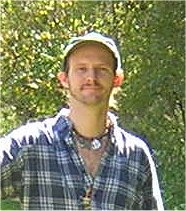As the days and nights soon pass being lengths, the days are becoming warmer. And I am again amazed at the magical transformation the world is undergoing.
Oh, I have things I enjoy about each season of the year. But the warmer months have my full attention. And I am just as happy to leave the cold days of Winter behind. The brown earth. The skeletal trees. And the only birds which had such little variety in their coloring!
There seems to be a half-week every year when the native plants all burst forth in color. And we are getting close to that time. Already familiar birds of color are returning to the skies. And our winter coats are being phased out for yet another year.
Many of us spend this time doing what we call Spring Cleaning: out with the old, in with the new, and dusting off the rest. Everything is changing, from the cold sleepy days of the dark months, to the warm, vibrant days of the sun. And so also do those of us with seasonal affective disorders climb out of our shells.
But what world do we come out into? This is a time of inreaching; a time of planting the seeds of our future. And here is where we control what our future will be.
Change is the only constant in the universe. Our world is changing before our eyes. The rather comfortable times we've lived in since the last great wars have been replaced by times of fear and terror.
The world is rocked by wars and rumor of wars. Artificial climate changes are becoming apparent. And the voices of intolerance seem to grow each day.
In our time of inreach, we may find many things in the world which bring the fighter out of each of us. But it is important to know when to fight and when to stand firm. Sometimes patience is the best defense against a world of injustice.
This is the time when we must do what our species does best: stop, ask questions to understand the situation more fully, and then make enlightened decisions. As quickly as our world is changing today, we cannot afford the mistakes which often come with knee-jerk reactions.




